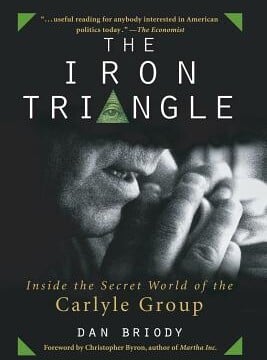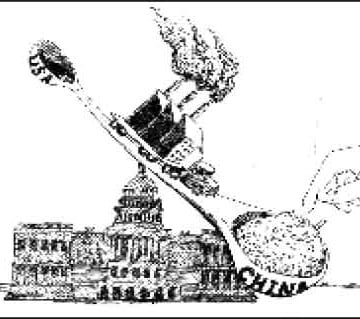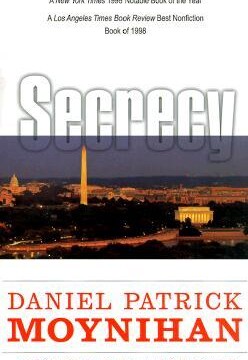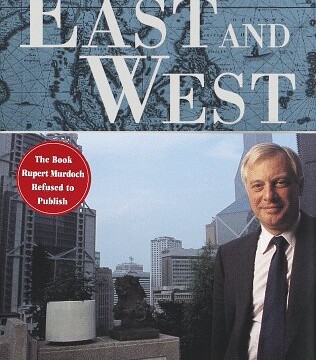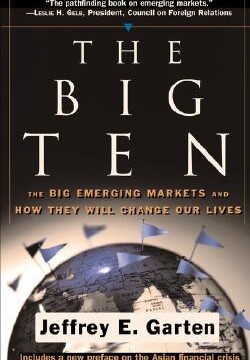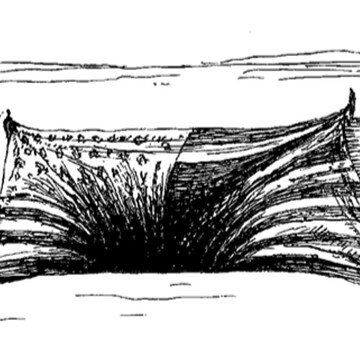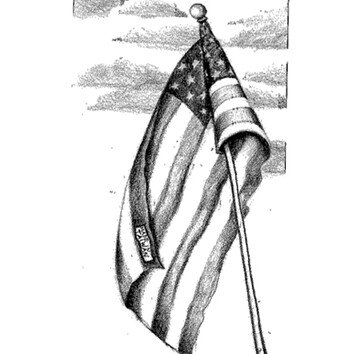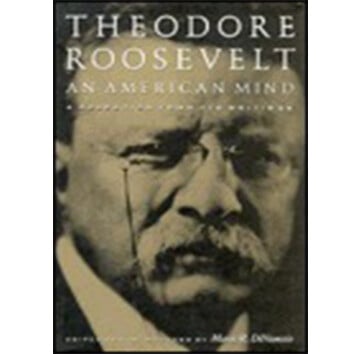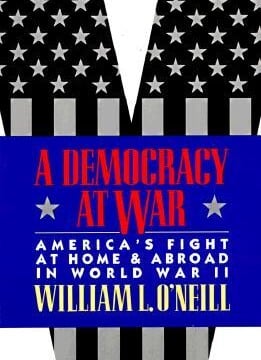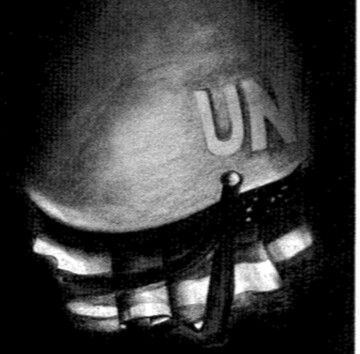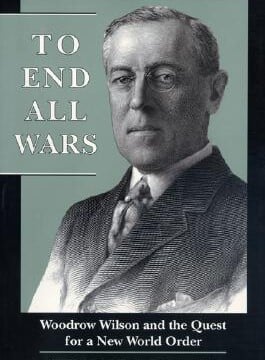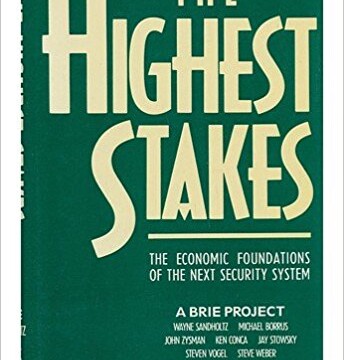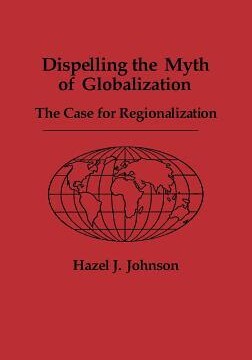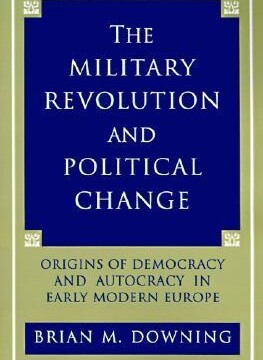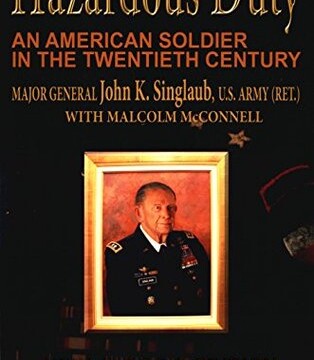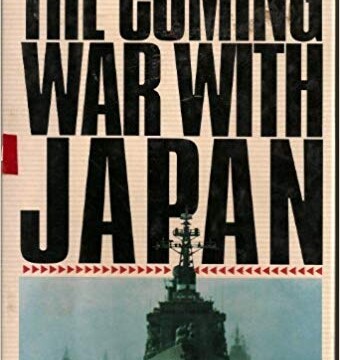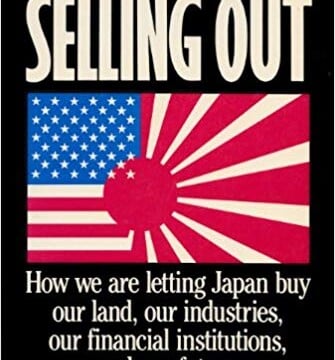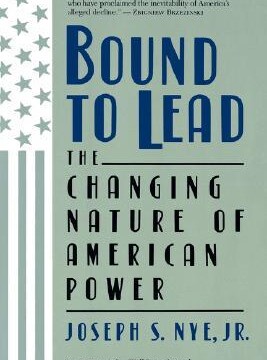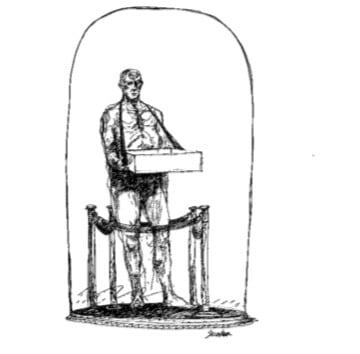When President George W. Bush, Canadian Prime Minister Stephen Harper, and Mexican President Felipe Calderón met in Quebec in mid-August, they were greeted by news stories that had migrated into the mainstream media from the populist fringe, alleging that the three national leaders were conspiring to create a supranational North American Union (NAU). Responding to...
Author: William Hawkins (William Hawkins)
A COM for Africa
Ryan Henry, principal deputy under secretary of defense for policy, held a briefing on April 23 about the future opening of the new Africa Command (AFRICOM). It will join other U.S. commands that coordinate military and interagency operations for the Middle East, ...
A COM For Africa
Ryan Henry, principal deputy under secretary of defense for policy, held a briefing on April 23 about the future opening of the new Africa Command (AFRICOM). It will join other U.S. commands that coordinate military and interagency operations for the Middle East, Latin America, Europe, and the Pacific. In her influential book The Mission, Dana...
Giving America Priority in Trade Policy
As the global-trade establishment becomes more insulated from the growing criticism of people still rooted in their native soil, it is missing the turn in world events that is frustrating its efforts. Examples abound. The latest round of trade-liberalization negotiations has never managed more than a crawl since it was launched by the World Trade...
Opposing CFIUS
Sen. Richard Shelby (R-AL) received a letter on March 23 from a gaggle of organizations representing the financial industry. The group included the American Bankers Association, the Bankers’ Association for Finance and Trade, the Investment Company Institute, the Securities Industry Association, the Bond Market Association, the Financial Services Forum, and the Financial Services Roundtable. They...
The Price of Oil
Oil prices have been soaring, yet the U.S. media has overlooked one of the chief reasons why. The 2005 Department of Defense report on “The Military Power of the People’s Republic of China” cites Beijing’s growing need for foreign sources of metals and fossil fuels as a “driver of strategy,” noting that these account for...
The Rise of China
Anyone who doubts that China is rising fast as the new power in Asia need only take the ride I took last fall through Shanghai, from the Hongqiao International Airport to the Bund area along the Huangpu riverfront. It was just after dark, and this mammoth city was lit up in an awesome display the...
The Myth of an Antiglobalist Left
As I write, Washington has just been subjected to a weekend of left-wing protests that even the conservative-oriented Washington Times estimated brought 500,000 demonstrators to the nation’s capital. The March for Women’s Lives, with its shrill advocacy of abortion, overshadowed the antiglobalization rally protesting the meetings of the International Monetary Fund, World Bank, and G-7...
Soaring Gas Prices
Gas prices are above two dollars per gallon, making the antiwar chant “no blood for oil” sound even more naive than usual. Gasoline prices in Europe and Japan are, as usual, running more than twice American prices. According to research by the International Energy Agency (IEA), in cooperation with the Organisation for Economic Co-operation and...
Presidential Campaign Should Change the Trade Debate
While the antiwar rhetoric that fueled the early days of the Democratic presidential primaries has not gone away, attacks on President Bush’s dismal record of net job losses have now taken precedence. Unfortunately, Rep. Dick Gephardt, the first to drop out of the race, was the only Democratic candidate with a record of opposing the...
How the World Works
As an economics professor, I taught from the Chicago School scripture about the superiority of private business over any contending sector of society. I could never teach so naively again after spending almost a decade observing the Washington legislative sausage factory. Republicans and New Democrats have merged business interests and government policy into a symbiotic beast...
A Serious Competitor
China’s first manned space mission should serve as a warning that Beijing is serious about becoming a “peer competitor” of the United States. Some commentators mocked the Chinese effort as being far behind the achievements of the U.S. space program. Yet no other country—not even the supposedly more advanced Japan nor any European state—has accomplished...
American Economy
The WTO talks in Cancun, Mexico, and their ultimate collapse were similar to what happened in Seattle in 1999, when President Bill Clinton, an avowed “free trader,” walked out when faced with demands even he could not stomach. Four years later, the United States again faced an intransigent coalition presenting unacceptable demands. Liberal commentators have...
Nations Still Count in a Globalized World
At the end of every major period of international strife since at least the Seven Years War, the claim has been put forth that a New World Order has finally arrived that makes possible the substitution of commerce for geopolitics and of law for armaments. This view came into its own after the Napoleonic Wars...
On the Shoulders of Giants?
The Arts and Entertainment (A&F) television network, best known for its Biography series, has produced a list of the 100 most important figures of the millennium and devoted four hours of airtime to explain its picks. The list consists mainly of consensus figures: Beethoven, Columbus, St. Thomas Aquinas, Genghis Khan; and some 30 names are...
Deployments in Kosovo
American troop deployments in Kosovo were the subject of a debate in the House of Representatives on March 11. A resolution authorizing President Clinton to contribute U.S. ground troops to a NATO peacekeeping mission in the troubled province was supported by 219 members, just one more than a majority. While the vote cut across party...
Globalization and the Decline of the Family
By many important indicators, the American economy is soaring. Unemployment has hit a 30-year low, and productivity is on the rise. These two factors, combined with low inflation, have finally started to push up real wages for most workers. Yet below the surface, conditions are not so encouraging on the economic front and even less...
The Secrets of Liberalism
“A secret may be sometimes best kept by keeping the secret of its being a secret.” —Henry Taylor I was reading his new book when Daniel Patrick Moynihan announced that he would not seek a fourth Senate term in 2000. A university professor who served in every administration from that of...
NAFTA Approved
NAFTA was approved by Congress in November 1993. That year, the United States had a $1.6 billion trade surplus with Mexico, down from $5.7 billion the year before. The proponents of the new agreement argued that the “opening” of Mexico would reverse this trend. Home to 90 million people, Mexico was portrayed as a “big...
The Lady From Niger
“There once was a lady from Niger Who smiled as she rode on a tiger. They returned from the ride With the lady inside And the smile on the face of the tiger.” —Ogden Nash Christopher Patten warns at the start that his engagingly written book is not a memoir. Though the core of it...
Bipartisan “Nationalist” Coalition
The Bipartisan “nationalist” coalition which has been emerging in response to the cosmopolitan policies of the Clinton administration scored several notable victories in the week before Congress adjourned for 1997. The House defeated an attempt to extend NAFTA to the countries of the Caribbean and Central America. This measure was clearly linked to the corporate...
Big Emerging Mistakes
The theory that “big emerging markets” (BEMs) m the Third Worid will be the driving force of the world economy, and thus of worid politics, has been at the core of the Clinton administration’s foreign policy. As Undersecretary of Commerce for International Trade during President Clinton’s first term, Jeffrey E. Garten was the principal author...
Declaring China “Normal”
The annual process of extending “most-favored-nation” (MFN) trade status to communist China was to have a new twist this year. Beijing’s friends in Washington were pushing for an end to this embarrassing review of Beijing’s brutal behavior by granting MFN to China on a permanent basis. The move was to be attempted before China takes...
It’s Sovereignty, Stupid!
On March 18, President Bill Clinton tested the waters on the foreign trade issue. These waters had been heated up by Republican contender Patrick Buchanan’s attacks on “unfair trade deals,” which had hurt Americans for the benefit of transnational corporations. Speaking in New Orleans, Clinton defended his “free trade” policies, quoting John F. Kennedy and...
Social Engineering in the Balkans
In his November 27 televised speech explaining his rationale for sending United States troops into the Balkans, President Bill Clinton said his goal is “preserving Bosnia as a single state.” Testifying three days later before the House National Security Committee, Secretary of State Warren Christopher said “only with peace does Bosnia have the chance to...
The Surrender of Political and Military Sovereignty
Sovereignty is a people’s ability to govern its internal affairs and protect its independence against outside interference. Military power has always been the most obvious pillar of sovereignty. Clausewitz’ dictum that the object of war is “to compel your opponent to do your will” means that the victor substitutes his sovereignty for that of the...
The American Churchill
While reading this wide-ranging collection, I was struck once again by the similarities between Theodore Roosevelt and Winston Churchill. Both were prolific writers of books and essays that incorporate history and political thought with personal experience. And while the prime motive of both men was to earn extra income, each had an energetic style that...
The People at War
“The wars of peoples will be more X terrible than the wars of kings!” So predicted the young Winston Churchill as the new century dawned in 1901. The world wars (two hot, one cold) that have marked the decades since have validated Churchill while contradicting the glib predictions that “global democracy” would bring a new...
The Retreat From Realism
The essence of conservatism is realism. Conservatives properly study the bloody lessons of history and recognize the ambiguous temper of human nature. They reject the grand but unworkable schemes for radical reform proposed by the socialist left. They favor local and state programs over federal ones, because they fear that the plans of a distant...
Roots of a New World Order
Though Thomas Knock draws no explicit comparisons between Woodrow Wilson’s plans for a post- Great War world and the policies George Bush tried to fashion for a post-Cold War world, his use of the term “New World Order” in the title of his book is clearly meant to steer the reader to think in parallel...
Let Them Eat Brie
The Berkeley Roundtable on the International Economy (BRIE) has been in the forefront in devising the new paradigm of strategic trade and industrial policy. This set of essays by BRIE members articulates the group’s view of how the major national economies grow, innovate, and compete with one another and examines the various alternative world orders...
Key Issue
Ron Brown was recently blasted by an organ that is usually quite friendly to Democrats, the New York Times. Its editorial page blasted Brown’s confirmation hearing for Commerce Secretary as a “bipartisan disgrace,” claiming it “amounted to an open declaration that companies with strong Democratic connections reserve the right to continue the attitude of greed...
The New Imperialism
The terms “global economy” and “New World Order” have become part of the common litany that frames foreign policy discussions. Though the second term is often used in a mocking or ironic tone, the first has attained the status of a paradigm. Yet Hazel J. Johnson, a professor of finance at the University of Louisville,...
The Democratic Trajectory
It is common in liberal and neoconservative circles to argue that the United States should foster democracy around the world to enhance its own security because “democracies don’t fight each other.” At the same time, more traditional conservative critics call for a return to classical republicanism, which they believe will produce, among other things, peace...
Additional Reductions
President Bush’s 1993 budget called for additional reductions in defense spending totaling $50 billion over five years. Liberal members of Congress immediately sharpened their knives to make even larger cuts. Bush’s recommendations in regard to nuclear weapons were sensible. Termination of the B-2 bomber and Midgetman ICBM programs was justified, as both were far too...
The Anti-Americans
This latest installment in Paul Hollander’s series of exposes of left-liberal thinking has a broader perspective than his previous work. His first book, Political Pilgrims, and subsequent writings focused on the affinity of Western liberals for communist states vis-a-vis the United States. Now, with the Cold War over and communism discredited, the real motive of...
Talking Brass
I remember having dinner with John Singlaub shortly after he retired from the Army. The Young Americans for Freedom chapter at the University of Tennessee, of which I was president, had invited him to speak on campus. Singlaub had gained considerable notoriety for having been fired as Chief of Staff of the U.N. Command and...
Yellow Peril (Part II)
Do not be put off by the sensationalist title. This is a solid geopolitical and economic study of power in the Pacific during the 20th century. Basing their prophesy on the record, George Friedman and Meredith Lebard conclude that a second U.S.-Japanese war is highly probable in the early 21st century. The authors do not...
Win or Lose
When Desert Storm commander General Norman Schwarzkopf thanked President Bush for letting the military fight the Gulf war on its own terms, he was expressing an idea deeply felt in the Pentagon for over twenty years: “No more Vietnams.” Both Schwarzkopf and his boss, General Colin Powell, chairman of the Joint Chiefs of Staff, experienced...
Aliens and the Alienated
American leftists today yearn for a more receptive proletariat. They have virtually given up on the white working class, which they feel has been subverted by bourgeois values and the consumer society. Instead they have turned towards people of non-European stock to build a new base. The anti-Western “multiculturalism” that has become so controversial at...
The Sun Never Sets
An Anglo-Indian force of 24,000 men under General Sir Hugh Cough attacked a Sikh army of 52,000 at Gujarat in the Punjab on February 21, 1849. In the words of Byron Farwell, the Sikhs had “a splendid army. Its equipment was modern and it had the largest artillery park in Asia. The Sikhs made fine...
A Logical Choice
Machiavelli, in answer to the question of whether a prince should prefer gold or arms, replied that arms were the logical choice since gold could not always buy a strong military but a strong military could usually acquire wealth. This answer had not changed three and a half centuries later when Kipling wrote, “Gold for...
Tuition for America
“Commerce is a perpetual and peaceable war of wit and energy among the nations” wrote the 17th-century French statesman Jean Baptiste Colbert. He likened his Grandes Compagnies, state chartered trading companies, to “armies” attacking the economic foundations of rival nations. Colbert’s primary target was the Dutch, whose economic leadership was also being undermined by the...
Open Doors, Open Questions
“Many believe that the country is overextended and should reduce its external commitments. But in a world of growing interdependence among nations, this advice is the wrong answer, and U.S. decline is the wrong question.” So Joseph Nye begins his rebuttal of those doomsayers who have welcomed proclamations of America’s decline. If the nation’s loss...
Budgetary Issues
The fiscal 1991 budget proposed by President Bush totaled some $1.2 trillion. This prodigious amount, larger than the entire Gross National Product of twenty years ago, is considered a “tight budget” in Washington. Politicians complain that they cannot find enough money to finance programs, while the hunt has been on to find programs to cut...
The Incredible Lightness of Being Liberal
John Taft’s book is a history of American foreign policy from World War I through the Vietnam War, as exemplified by the careers of prominent “liberal internationalists” who dominated the policymaking process: William Bullit, Averell Harriman, George Kennan, Chester Bowles, Henry Cabot Lodge, Jr., Dean Acheson, David Bruce, John Foster Dulles, Herbert Hoover, Ellsworth Bunker,...
Whose Wealth of Whose Nation?
“Then the Gods of the Market tumbled, and their smooth-tongued wizards withdrew, And the hearts of the meanest were humbled and began to believe it was true That All is not Gold that Glitters, and Two and Two make Four— And the Gods of the Copybook Headings limped up to explain it once more.” Rudyard...
Trade Surplus Nation
A trade surplus nation for the century before the 1980’s, the US had been the world’s leading industrial power since 1900 and a net creditor since World War I. The apparent reversal of all of these positions in less than a decade has elicited both consternation and controversy. By early 1989, a Washington Post/ABC News...
Soviet Strategy
“He crucified noble, he sacrificed mean, He filled old ladies with kerosene. While over the waters the papers cried ‘The patriot fights for his countryside!'” —Rudyard Kipling, “The Ballad of Boh da thone” For 40 years two topics have dominated popular discussions of international conflict. The first is the specter of nuclear war...
National Insecurity
“Diplomacy is utterly useless where there is no force behind it.” —Theodore Roosevelt From the elevation of arms control to the opening of talks with the PLO, the course of American foreign policy in recent years has led some to wonder why Ronald Reagan was once considered such a contrast to Jimmy Carter. The cycle...


